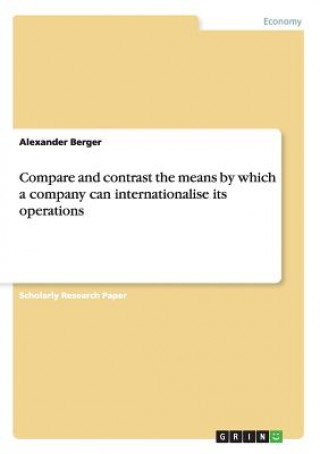
Kód: 01646687
Compare and contrast the means by which a company can internationalise its operations
Autor Alexander Berger
Scholarly Research Paper from the year 2011 in the subject Business economics - Business Management, Corporate Governance, printed single-sided, grade: 85%, University of Sunderland, course: International Business Environment (PGB ... celý popis
- Jazyk:
 Angličtina
Angličtina - Väzba: Brožovaná
- Počet strán: 32
Nakladateľ: Grin Publishing, 2011
- Viac informácií o knihe

Mohlo by sa vám tiež páčiť
-

DC-DC Power Converter Design & Implementation
64.13 € -

Air Force Suicide Prevention Program - Scholar's Choice Edition
22.46 € -

Alaska Native Claims Settlement ACT Amendment - Scholar's Choice Edition
22.46 € -

Essays on Fourier Analysis in Honor of Elias M. Stein (PMS-42)
265.96 € -

Butterflies of Canada
62.50 € -

Genetically Engineered Marine Organisms
139.21 € -

Applied Research in Environmental Economics
214.07 € -

Companion to Vergil's Aeneid and its Tradition
71.69 € -

Computer-Supported Calculus
70.67 € -

Absolutely Summing Operators
160.04 € -

Lexikon der Sprichwoerter und Redensarten Band 19 (Ma - Na)
70.87 € -

Matherad 3/4
29.10 € -

Podkarpatská Rus
6.73 € -14 % -

Marktabgrenzung.
89.16 €
Darujte túto knihu ešte dnes
- Objednajte knihu a vyberte Zaslať ako darček.
- Obratom obdržíte darovací poukaz na knihu, ktorý môžete ihneď odovzdať obdarovanému.
- Knihu zašleme na adresu obdarovaného, o nič sa nestaráte.
Viac informácií o knihe Compare and contrast the means by which a company can internationalise its operations
Nákupom získate 114 bodov
 Anotácia knihy
Anotácia knihy
Scholarly Research Paper from the year 2011 in the subject Business economics - Business Management, Corporate Governance, printed single-sided, grade: 85%, University of Sunderland, course: International Business Environment (PGBM04), language: English, abstract: In terms of management philosophies, companies can be categorized as ethnocentric (homemarket oriented), polycentric (oriented toward individual foreign markets), regioncentric or geocentric (oriented toward larger areas, even the global market place) (Czinkota, 1999, pp.395). Nevertheless, the world economy is more and more characterised by an increased internationalisation in which companies see a chance to improve their long-term competitiveness, to increase their profitability as well as to balance the economic cycle of the home market by diversify the risk internationally. In addition, there are non-economic motives such as to obtain power and influence as well as to gain prestige. However, to internationalise successfully companies must create a strategy of internationalisation. Part of this strategy is for instance the choice of the target market and the timing of entering a market. In addition, a strategy can be created based on the control aspect, the capital employed as well as how much risk is involved in internationalising the operations. Referring to this,there are several modes a company can choose to internationalise its operation, which can be divided into equity and non-equity modes. In general, non-equity modes such as franchising, exporting, etc. are lessexpensive and risky than equity modes. For companies with little international experience, non-equity modes provide a good start to begin their operations internationally. Equity modes such as Foreign Direct Investments provide the most control of the business and as the name already indicates there is a substantial equity participation involved. However, when creating an international strategy companies must consider risk aspects that can be categorised into political, economic, and legal risks. In addition, as companies operate internationally the more they deal with the diversity of languages as well as cultural differences which a company must give attention to.This paper will identify the main reasons for and against internationalisation as well as present different types of entry modes. At the end, the internationalisation of Wal-Mart will be analysed mainly focusing on Wal-Mart entering Germany.
 Parametre knihy
Parametre knihy
Zaradenie knihy Knihy po anglicky Economics, finance, business & management Business & management Management & management techniques
45.85 €
- Celý názov: Compare and contrast the means by which a company can internationalise its operations
- Autor: Alexander Berger
- Jazyk:
 Angličtina
Angličtina - Väzba: Brožovaná
- Počet strán: 32
- EAN: 9783640937837
- ISBN: 364093783X
- ID: 01646687
- Nakladateľ: Grin Publishing
- Hmotnosť: 54 g
- Rozmery: 210 × 148 × 3 mm
- Dátum vydania: 22. June 2011
Obľúbené z iného súdka
-

High Output Management
16.74 € -13 % -

Principles
26.04 € -23 % -
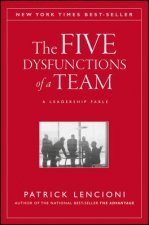
The Five Dysfunctions of a Team
22.56 € -20 % -

The Making of a Manager
16.43 € -24 % -

Turn The Ship Around!
12.04 € -16 % -

Hooked
12.86 € -24 % -

Inspired - How to Create Tech Products Customers Love, 2nd Edition
30.02 € -4 % -

Give and Take
10.20 € -24 % -

Multipliers, Revised and Updated
11.84 € -23 % -

Devil Take the Hindmost
16.54 € -22 % -

Traction
17.76 € -16 % -

The 4-Hour Workweek
22.97 € -18 % -

The Daily Stoic
14.09 € -24 % -

12 Week Year - Get More Done in 12 Weeks than Others Do in 12 Months
20.83 € -21 % -
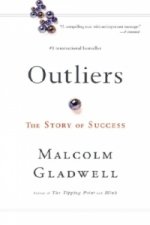
Outliers
10.41 € -9 % -

Way, the Enemy, and the Key
41.46 € -25 % -

Leadership BS
31.75 € -6 % -

Managing Change in Organizations
34.51 € -4 % -

Triggers
11.23 € -16 % -

Scrum
11.33 € -24 % -
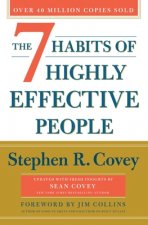
7 Habits of Highly Effective People
22.15 € -

Drive
12.25 € -23 % -

New One Minute Manager
10.61 € -21 % -

Wooden on Leadership
26.24 € -23 % -

Spiral Dynamics - Mastering Values, Leadership and Change
33.80 € -15 % -

Leaders Eat Last
16.13 € -
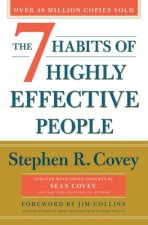
The 7 Habits of Highly Effective People
24.09 € -23 % -

How Women Rise
10.92 € -24 % -

Dealing with Difficult People (HBR Emotional Intelligence Series)
17.15 € -19 % -
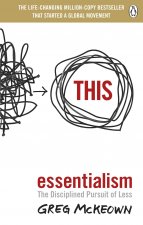
Essentialism
13.37 € -21 % -

Million Dollar Habits
19.60 € -18 % -

Unlimited Memory
17.15 € -19 % -

Standard for Portfolio Management
72.30 € -4 % -

Primal Leadership
24.20 € -16 % -

Managing Transitions
20.83 € -23 % -

I Dare You!
4.69 € -23 % -

Executive Coaching with Backbone and Heart - A Systems Approach to Engaging Leaders with Their Challenges 2e
68.73 € -

27 Challenges Managers Face
27.57 € -6 % -

Economist Guide to Financial Management 3rd Edition
25.93 € -

It's Not the How or the What but the Who
22.66 € -27 % -

Millionaire Fastlane
26.55 € -

Extreme Ownership
24.09 € -23 % -

Leaders Eat Last
11.12 € -23 % -

The Coaching Habit
17.46 € -5 % -

Professional Product Owner, The
32.98 € -3 % -

It's the Manager
38.90 € -5 % -
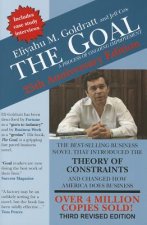
Goal
21.13 € -19 % -

Co-Active Coaching
36.76 € -3 % -
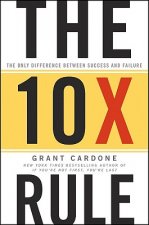
The 10X Rule
22.56 € -20 %
Osobný odber Bratislava a 2642 dalších
Copyright ©2008-24 najlacnejsie-knihy.sk Všetky práva vyhradenéSúkromieCookies



 21 miliónov titulov
21 miliónov titulov Vrátenie do mesiaca
Vrátenie do mesiaca 02/210 210 99 (8-15.30h)
02/210 210 99 (8-15.30h)